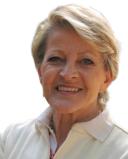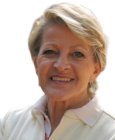Emotional Intelligence
Losing the Spirits?
COVID-19 is pointing us towards a more emotionally intelligent way of living.
Posted February 11, 2021
The other day, I was talking to a European friend who has a long experience of working in different African countries. During the conversation, all of the sudden, he said: "You know, they are still animists." I was struck by the word "still," as if being animist (the belief that objects, places, and creatures all possess a distinct spiritual essence) was a situation one needed to escape from.
A report recently published by CEMS, to which I contributed, describes how the pandemic has granted us the opportunity to stop, reflect and learn; to rethink the culture, operations, processes, and frameworks that define us. Post-pandemic successful leaders and colleagues will need to shift to more flexible, open attitudes, centered on inclusivity and empathy. In short, COVID-19 is pointing us towards a more emotionally intelligent way of living.
However, the example of my friend demonstrates that international experience doesn’t necessarily equate to emotional intelligence. One can have a lot of one without the other. To be emotionally intelligent, we need to know ourselves, first of all, to understand where our thinking comes from, and to understand a different kind of thinking — shift our mindset. Emotional Intelligence means showing that we are interested in the language, the culture, the history of our counterpart. That we are able to work and live seamlessly across borders.
Black-or-white thinking
A key of emotional intelligence in any area of life means we accept and appreciate that there are different kinds of thinking and believing and that we want to learn from those differences. While of course, this doesn’t mean you have to change your religion, it does mean developing a deep openness to the beliefs and traditions of others — a willingness to appreciate different worldviews.
I’m reminded of the reaction of a Congolese student in my cross-cultural management course in Thailand. In Thailand, the spirit houses are everywhere in sight, some very elaborate and luxurious, others extremely small and modest, according to the financial means of the owners of a house or a building. They are in front of the houses, are provided with flowers, candles, food, and water, and greeted when passed.
The Congolese student said: "Thai people are so lucky. The colonizers told us that we had to reject our spirits, those of the land, those of our ancestors. Some still have spirit houses or objects representing our spirits, but they hide them."
There is something deeply sad in this. It demonstrates dualistic thinking: There is only one truth — things are black or white, right or wrong, and nothing in between. We call this the "either-or" thinking, based on dichotomies, stressing the differences between cultures, and creating an evaluative discourse about the others, such as the opposition between the "rational, modern, democratic" and the "emotional, traditional, and nepotic."
On the other hand, I can point to models that demonstrate an empathetic "both-and" thinking. For example, within the Yin and Yang model, there is white in the black part and black in the white part. Both black and white, right and wrong can co-exist.
In Japan, syncretism, the simultaneous practice of multiple religions is the makeup of religiousness. In Japan, syncretism blends Shinto and Buddhist practices and beliefs, and other religions such as Christianity are practiced side-by-side with other traditions. Spirits are discussed and represented even in modern phenomena of animism such as manga, and as in many other cultures, ancestor cults have played a central role in culture and religion for many centuries.
Respect for different worldviews
Exposure to other cultures can confirm us in our right, or it can make us challenge and understand where we come from, why we think a certain way, and why others believe different things.
Through developing emotional intelligence (it can be nurtured) we become richer in our knowledge and our understanding, able to develop respect and appreciation for different worldviews without judgmental reaction. It is not better or worse — it is just different. We can become better work colleagues, leaders, and humans through developing such an emotionally intelligent approach in a post-pandemic world.


